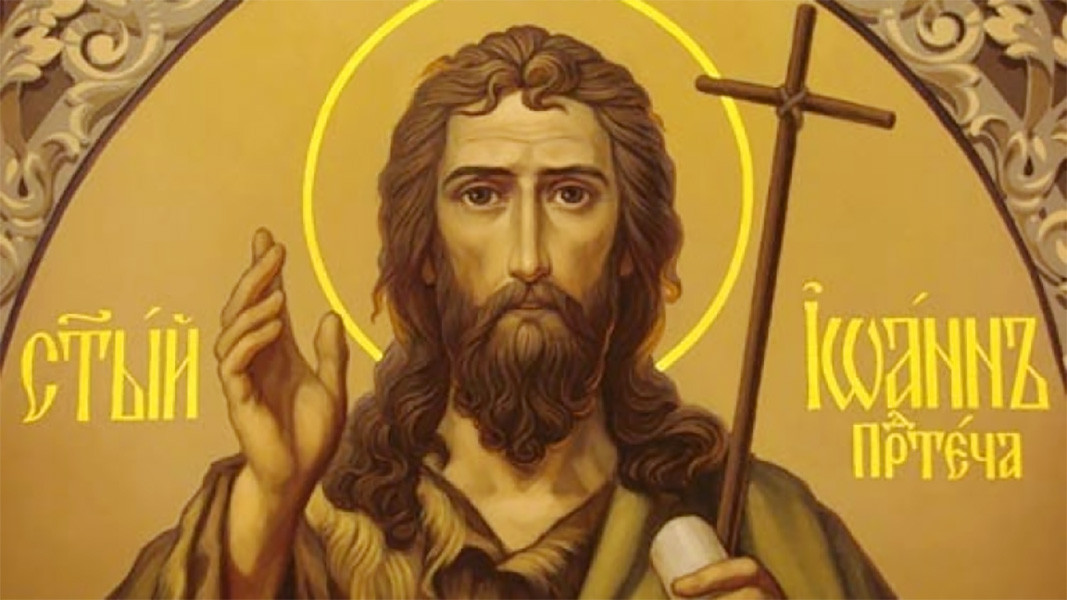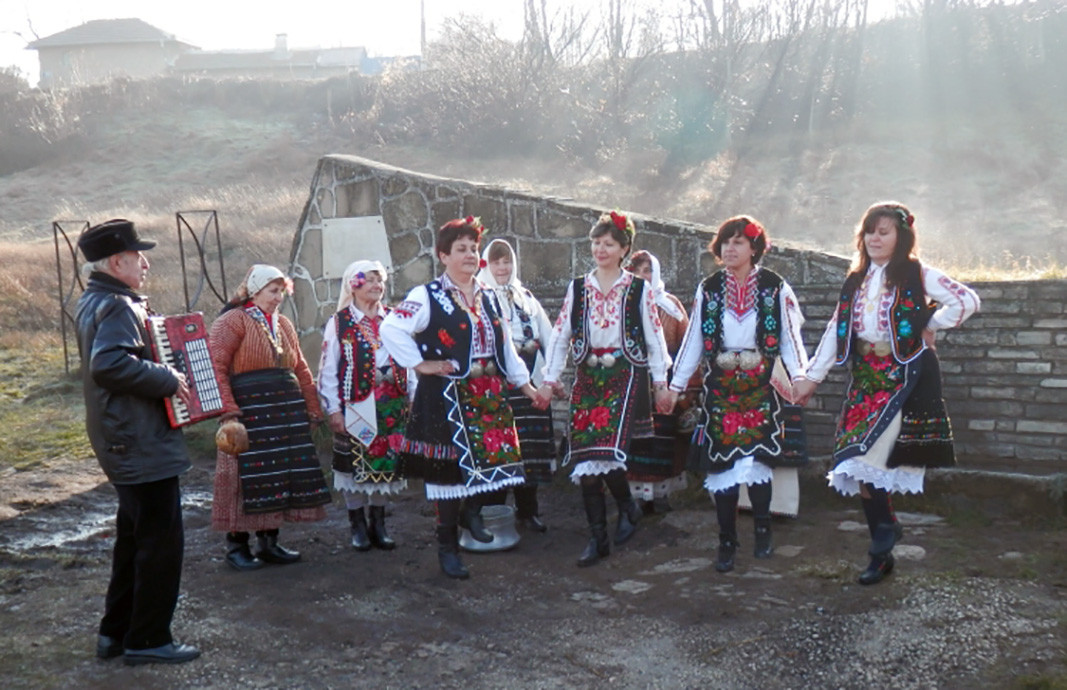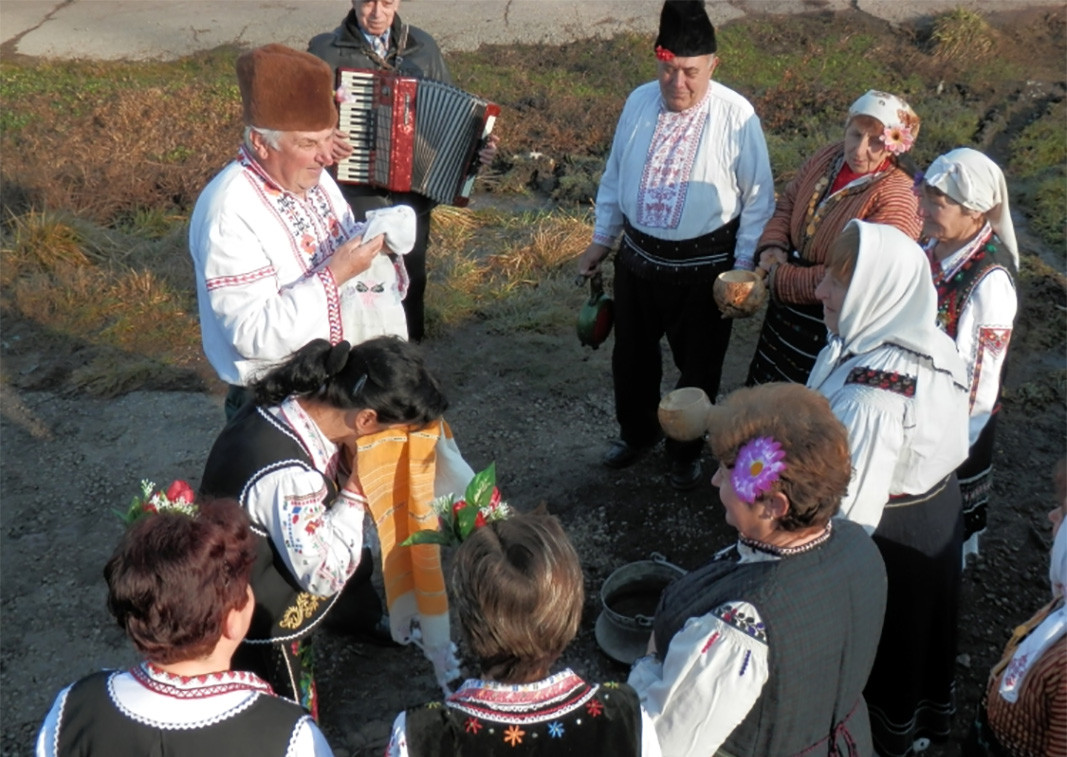Ivanovden (the feast of St. John the Baptist) is one of the most revered Bulgarian winter holidays. On this day, the Bulgarian Orthodox Church honors the memory of St. John the Baptist, the last of the Old Testament prophets who baptized Jesus Christ in the waters of the Jordan River.
The ritual bathing for good health in Bulgaria begins on Yordanovden (Epiphany) on January 6 and continues on Ivanovden (the Feast of St. John the Baptist) on January 7 and Babinden (Midwife’s Day) marked on January 8.

Residents of the village of Karaisen (Pavlikeni Municipality, Central North Bulgaria) celebrate the Feast of St. John the Baptist with the authentic ritual "Ivanovi Vlachugi", which is passed down over the generations since time immemorial. Today, the custom is celebrated at the largest water fountain in Karaisen, where people celebrating their name day on Ivanovden, newlyweds, lads and lasses attend ritual bathing for sound health and fertility. "Ivanovi Vlachugi" ritual was awarded seven gold medals at the Koprivshtitsa Folk Festival in 1986 for its uniqueness.
This year, due to the coronavirus pandemic, few people will attend the bathing ritual in the village of Karaisen. The local village residents believe that "Ivanovi Vlachugi" ritual cleanses bad energy, chases evil spirits away, brings health and prosperity to the people who celebrate their name day on Ivanovden, as well as to the whole village. According to folk beliefs, the ritual bathing on Ivanovden brings fertility and children to the newlyweds. People also believe that lasses who attend the ritual are to settle down to a married life.

Traditions have helped us keep the Bulgarian spirit alive. That is why we preserve and perform the local ritual "Ivanovi Vlachugi", said the Mayor of Karaisen Stefan Nikolov and added:
"The custom is typical for our village and we don't know how old it is. Our grandmothers do not remember when it took place for the first time. Perhaps, it is very old - says Mayor Stefan Nikolov. - In the past, when the village was crowded and more than 4,500 residents lived there, "Ivanovi Vlachugi" was performed near water fountains and wells in various neighborhoods. We take people to the fountain on this day. The ritual bathing is great fun, as people try to escape and we drag them again to the water fountain.”
About 1,000 people live in the village of Karaisen at present. That is why the ritual now takes place at the largest fountain only.
"The oldest residents go to the fountain early in the morning to prepare the ritual. They wake up very early and cook the ritual meals - said Galya Licheva. - They are followed by sisters-in-law and middle-aged women. The newlyweds, who got married in the previous year, come to the fountain last. Many young girls and boys attend the festivity. The newlyweds bathe first and people say prayers for health, children and prosperity in their house. Then, the village residents start dragging and pulling the lads and lasses to the water fountain, wishing them to marry and have children.”

The festive table in Karaisen consists of homemade red wine, traditional pita bread and meat appetizers. The local housewives compete who will prepare the most delicious meat dish. In the village of Karaisen, as in all Bulgarian villages, winter is time for celebrations when people relax and get ready for hard work later in the year.
Edited by: Darina Grigorova
Photos: pavlikeni.bg and archive
The second annual Bean and Sausage Festival promises to be an unforgettable celebration of flavour and folklore in Zhitnitsa , a village in southern Bulgaria. On 7 September, the grounds of the local equestrian centre will host food lovers..
The Regional Open-Air Ethnographic Museum "Etar" was established as a center for the study of the traditional culture of the Balkan Range people. Today, this unique site near Gabrovo serves as a place where customs and traditions from the Bulgarian..
From today until August 24, the 15th Folklore Costume Festival Zheravna 2025 is taking place in the Dobromeritsa area. Over 30 kaba bagpipers will kick off the event (8:00 p.m.), which every year gathers thousands of visitors dressed in..

+359 2 9336 661
